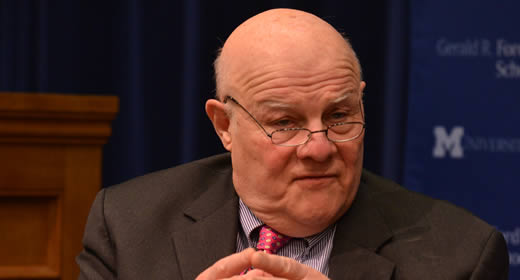
Where is the Drug Policy Debate Headed Next?
Question from Latin American Advisor
Colorado and Washington state passed measures legalizing recreational marijuana in the United States' Nov. 6 election. Luis Videgaray, the head of President-elect Enrique Peña Nieto's transition team, said afterward that while the administration remains opposed to legalization, the measures could result in changes to its anti-drug strategies, The Washington Post reported. How will the measures in Colorado and Washington affect the federal government's relationship with Mexico in the ongoing fight against drug cartels? What effects, if any, would more widespread marijuana legalization in the United States have on Mexican criminal organizations? Where does the debate about drug policy in the United States and in the region appear to be headed?
Answer from Melvyn Levitsky
"It is important to know that keeping marijuana illegal is a U.S. treaty obligation under the 1961 International Convention on Narcotic Drugs and supported by two other international drug treaties adhered to by virtually every country in the world. The United States was a prime mover of these multilateral treaties and was largely responsible for their signature and ratification by virtually every country in the world. In accordance with treaty law, each signatory must conform its legal structure to its obligations under the treaties it signs. The 1961 Convention classifies cannabis (marijuana) as a drug with no medical or scientific benefit. That classification is also present in federal law. Federal law in this area, under the supremacy clause of the Constitution, trumps state law. Marijuana is, therefore, illegal throughout the territory of the United States and state law or referendums cannot change that. In fact, the Obama administration has already stated that it will not honor any state law that 'legalizes' marijuana. The real question now is what instructions will the administration give to U.S. government departments and enforcement agencies about dealing with illegally 'legalized' marijuana? As for the popular myth that legalizing marijuana will cut crime, it's just that-a myth. In fact, legalization will make those under the age of 21 even more of a target and a potential illegal market for drug gangs and street pushers."
Editor's note: The above is a continuation of a Q&A published in the Nov. 16 issue of the Advisor. Posted with permission by Inter-American Dialogue's Latin America Advisor.
[Read full edition]